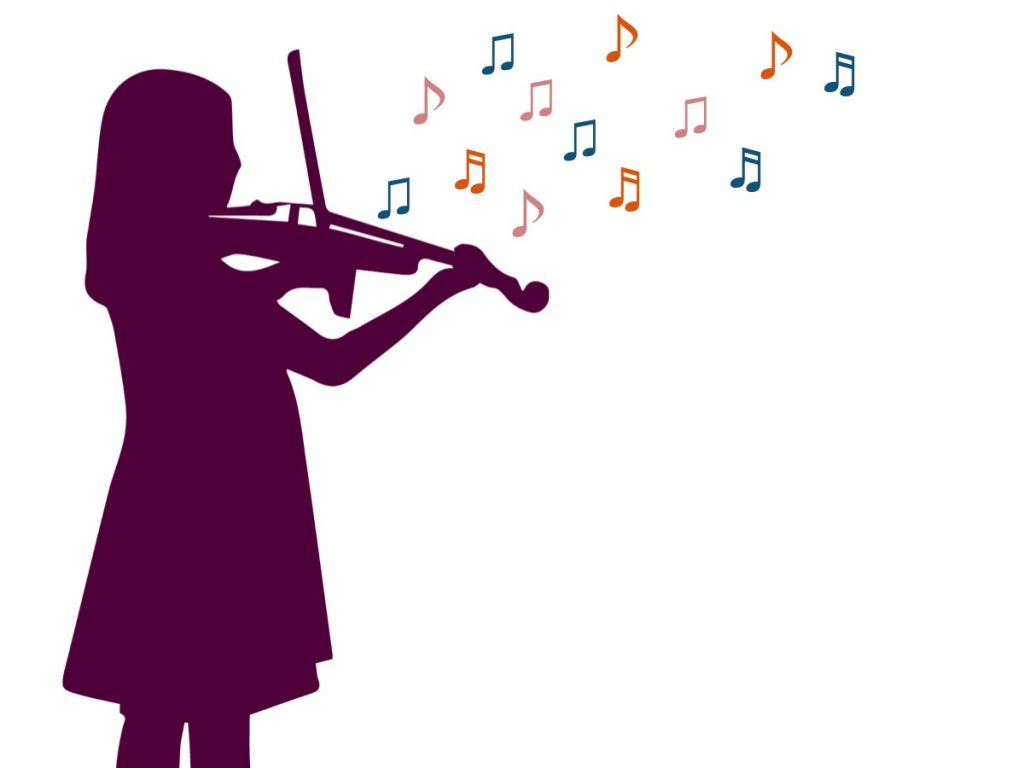
So far, we have seen that infants quickly learn a lot of musical information. They do so just listening to their culture’s music. But what about children who actively participate in music early in life? Scientists wondered if this early music experience could influence brain development. Could playing music, rather than just listening to it, result in changes to brain structure or function?
Does early music training help the developing brain understand musical information? To find out, researchers followed a group of four to six year old children who took violin lessons for a year. They also followed a group of children who did not take lessons. Every three months, researchers measured children’s brain responses to sounds. Children heard both violin sounds as well as white noise.
To measure brain responses, researchers used a brain imaging technique called magnetoencephalography (MEG). MEG allowed the researchers to pinpoint the exact time and location of the brains’ responses to sounds. Children taking violin lessons showed stronger brain responses to violin sounds. But there were no differences in their brain responses to white noise. Violin lessons may help focus children’s attention on violin sounds. And this focus allows the brain to process these sounds better.
-
- Beat
- the regular pulse of music
- Electroencephalography (EEG)
- a non-invasive method used to measure electrical activity in the brain
- Executive function
- a set of mental abilities that help us focus attention, remember information, and switch between tasks
- Magnetoencephalography (MEG)
- a non-invasive brain imaging technique used to determine which regions of the brain are active
- Meter
- a grouping of beats with specific patterns
- Neuroplasticity
- the ability to change how neurons in our brain are connected to each other
- Pitch
- the measure of how high or low we perceive sounds to be
- Pro-social behavior
- actions that are intended to help others
- Synchronized movement
- movements that occur in sync with musical beats and, or with other people
- Timbre
- the quality of a musical sound or voice that allows us to tell the differences between instruments or voices